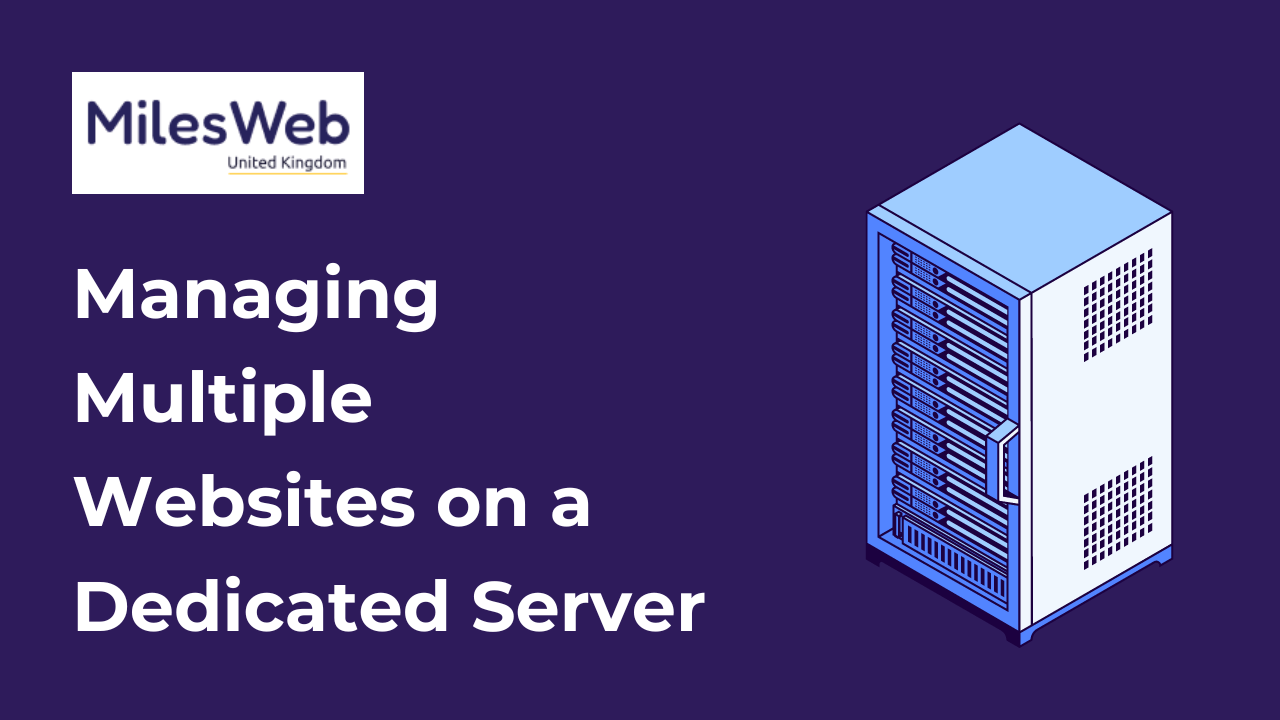Hosting multiple websites on different servers might be an expensive deal for website owners. That is why dedicated hosting servers or cloud hosting servers are used to host websites making financial sense. The single bare metal server contains all sets of hardware resources with the complete dedicated resources.
Because of dedicated resources, server resources cost are higher. Beginners may not prefer it, but corporations and organizations having websites with mission-critical websites use dedicated hosting servers. For website owners juggling numerous sites on different servers, the cost and complexity can quickly become overwhelming. This blog explores how dedicated hosting UK offers a solution.
Dedicated resources ensure superior performance, security, and control compared to shared hosting. Additionally, UK-based data centers guarantee lightning-fast loading speeds for European visitors. Some cheap dedicated server provider offers a cost-effective way to consolidate websites onto a single, powerful server. In this blog, we will discuss how to manage these multiple websites on a dedicated server.

Benefits of Hosting Multiple Websites on One Server
There are several benefits of hosting multiple websites on a single server.
- Cost Efficiency: Hosting multiple websites on one server reduces the cost of hosting each website. As a result, the maintenance cost is reduced of every website.
- Resource Optimization: No server resources are allocated to other hosting users. All specifications like disk space, CPU, and RAM are optimized for the single hosting account user only. Users get a dedicated IP address to handle more requests without incurring additional hardware costs.
- Scalability: Multiple websites on one server are easy to scale up or down as per requirement. Additional resources are allocated to individual account holders which results in ultimate scalability.
- Easy Management: Managing one server is simpler than managing multiple ones. It reduces the administrative burden on an IT staff and lowers the error risk.
- High Uptime: Hosting many websites reduces the downtime risk as websites can be switched between servers in the case of failure.
- Flexibility: Hosting many websites on one server allows website owners to easily add or remove websites as needed. It gives flexible options for all-size
How to Manage Multiple Websites On A Dedicated Server?
1. Control Panel
With every dedicated hosting plan, hosting account users get a control panel that is accessible on the relevant operating system. Linux and Windows are two major operating systems that are mostly pre-configured with dedicated hosting servers. With the help of a control panel, you get the freedom to control the features of the web hosting account. All you get is access to essentials like domains, email, files, databases, and FTP accounts.
In dedicated server hosting, the control panel is what enables you to create the best site possible by putting administrative power in your hands.
2. Essential Tools to Manage Websites
Apart from the control panel, several automation tools help in website management. There is a Version Control System (VCS) like Git which tracks changes that are made to websites and files. With this tool, everyone working on the same file works on the latest versions. If someone wants to restore the previous version, then it is possible. The best part about CMS platforms is that WordPress, Joomla, or Drupal are easy content creation tools for website management. Although there are managed WordPress hosting plans that ease WordPress management for other applications, dedicated hosting servers with an isolated environment are recommended.
3. Best Security
Implement robust security measures to protect your server and websites. This includes regularly updating the OS, software, and firmware, setting strong passwords, and enabling firewalls and intrusion detection systems. Many managed dedicated hosting service providers like MilesWeb offer free SSL certificates and 360-degree monitoring features in their plans.
As a result, hosting account users do not have to outsource any IT staff to meet server management requirements. The web host will be responsible for updating the server’s operating system, web server software, and other applications to patch security vulnerabilities. Thus, users can run their websites hassle-free.
4. Regular Backups
Regular backups are crucial to ensure there is no data loss. Implement a comprehensive backup strategy to create regular backups of your website files, databases, and server configurations. Store backups securely offsite to recover data in case of server failure or security breaches.
Web hosts run daily or weekly backups which helps keep the website’s data copied in the backup machine. During website migration or downtime, your data will not get lost. The web hosts special resources and tools for easy backup.
Conclusion
Managing multiple websites on a dedicated server offers a potent solution for businesses seeking enhanced control, security, and performance. While the initial investment might be higher compared to shared hosting, the benefits often outweigh the cost, especially when dealing with resource-intensive websites or those requiring strict security protocols.
Remember, successfully juggling multiple websites requires understanding server resources, implementing virtual hosts effectively, and utilizing control panels for streamlined management. By carefully considering your needs and technical expertise, a dedicated server can become a cornerstone for your online presence, empowering you to cultivate and manage your diverse web properties with confidence.

















































